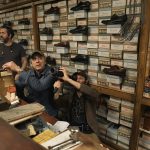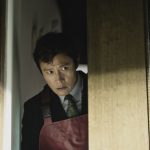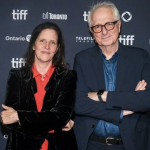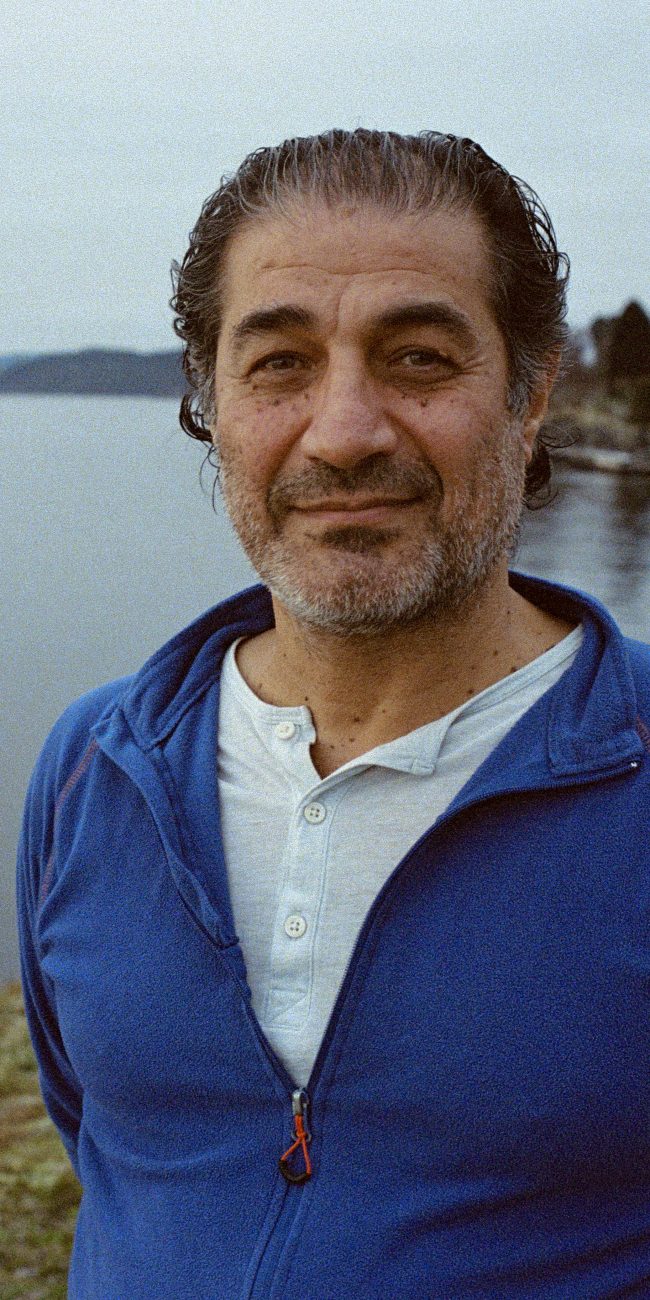A Conversation with Zippy Kimundu & Heather Courtney (WIDOW CHAMPION)

Out of Kenya’s population of 53 million, 8 million are widows. Many face not just the pain of loss, but the added trauma of being pushed out of their homes, denied their land, and labeled with cruel names: “witch,” “murderer,” “prostitute.” Widow Champion, a 2025 documentary that premiered at the Tribeca Film Festival on June 9, follows widow rights advocate Rodah Nafula as she challenges these deeply rooted injustices. After losing her own husband, Nafula spent years fighting for the land rights to her home, an experience that drove her to stand up for others in the same situation.
“They [in-laws] called me a witch, a glutton, a mad woman, a prostitute. They even destroyed my house,” she says in one scene. Amidst her own hardships, she began working to protect women who, like her, were targeted during their most vulnerable moments.
Described by director Zippy Kimundu as “a battle between culture and modernity,” the film explores a broken legal system shaped by corruption and patriarchy. Widow Champion is a powerful, clear-eyed look at a widespread but often overlooked issue facing women not just in Kenya, but around the world.
Hammer to Nail: From films such as Eye for an Eye and Dear Ms.: A Revolution in Print, to The Inquisitor and She Runs the World, Tribeca 2025 heavily documented the hardships women face across the world, as well as their incredible strength in the face of it. Rodah Nafula, Widow Champion’s protagonist is one of these women. How did you come about Rodah’s story?
Heather Courtney: So initially, the film started because a friend of mine who worked at a land rights organization called Landesa approached me about a grant that they were eligible for. It was a grant called Sundance Stories of Change. They used to pair NGOs with filmmakers, and you would apply for funding to do a film about the issues. It doesn’t exist anymore; we were the last year, unfortunately. I didn’t think much about it, but then we got the grant, and I was like, oh, well, we have to find a Kenyan director. [Zippy] was familiar with some of the women’s stories in Kenya, but she had not met Rodah yet. We met in January of 2019, in Kenya, and we went around and met various widows who were going through some of these issues and we met Rodah and we knew right away that Rodah was it. So Zippy became the director/producer on the ground, and I was more producer over here.
Zippy Kimundu: I got an email from Heather that said they were looking for a Kenyan partner. At that point, I was just in the middle of my making my first feature, so I was not very sure if I had the energy, but I said I was curious because it sounded really good and it was about women. There were five trained Widow Champions in the whole country and so we visited each of them as a research trip. So quickly after that, I was like, yeah, this is a story that has to be told. All these women were being thrown into the streets; they are under 40, they are just trying to get food for their children, but now they have nowhere to go. But we were not sure who we were going to follow. So subsequently, I went back and filmed with the other women a bit more, but with the third trip, I said, you know, it’s Rodah, because every time I went back, something big was happening. And then the others, because it was a volunteer job, they all dropped out. So there’s one Widow Champion active in Kenya.
HtN: How do these women become Widow Champions?
H.C: They’re trained by a local NGO called KELIN. The have a Widow Champion program and workshops that tell people about the issues and what their rights are, they help women get their title deeds to get housing again, and then they train these widows to be Widow Champions.
HtN: I’d imagine in following the lives of several different women, you collected a lot of footage. Not to even mention that the film itself spans from 2019 to 2024. Take me through the process of spending years enveloped in this issue and, more importantly, how you whittled it down into this film?
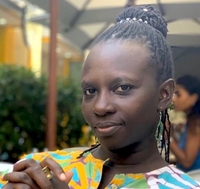
Filmmaker Zippy Kimundu
Z.K: In the first three years, I had to go into spaces by myself, just to be invisible, because this was the first time on camera was actually allowed into the spaces. So I had to be very respectful of the process. Sometimes I would be kicked out; sometimes I’d have to come back the next day or the next month. Then we got a bit of funding and we brought in another DP, Steve Ruiyi. So we were always ready to go back to location whenever something happened. It was just interesting and beautiful to see the resolving of the cases. Then we edited for maybe two years. We had hundreds and hundreds of hours, of the other Widow Champions, of the other cases, of scenes with Rodah talking with kids with schools. But collaboration, I think, is what made the film how it is today. We started cutting scenes with a Kenyan assistant editors at first, and then we got a really great editor named Franki Ashiruka, who sadly passed away in December. She got us to rough cut. And then in assembly, the editor Jordana Berg who cut my previous film, Our Land, Our Freedom, took it. It was so beautiful to have her on board.
H.C: Also, the thing that was great about working with Frankie and Jordana as editors, was that they also came from a place of letting the scene play out. Even in the assembly, Jordana was editing to make scenes longer. I think that’s why Zippy and I connected right away, too, because we both believe in the true follow doc, vérité, observational approach where you just let things happen in front of the camera. It’s these nuanced moments that, if you’re chopping them up, don’t come out. The whole mediation process is very nuanced and complex – it could be seven or eight hours. How do you cut that down to a scene but still have it reflect the reality of what happens, how long and complex the process is?
Z.K: The process of making the film was just a joy to see the progression. Every time I went back [to Kisumu] there was something Rodah was doing. The first time we filmed Rodah, Mary reports her case and then every time I went, there was such a big leap in the story that I kept documenting. Then there’s the other widow, Theresa, whose in-laws are…interesting. They were two very different women going through the same thing but in a very different way, so we thought those were the best people to depict in the film. And even for Rodah, she’s not yet safe. Yes, she’s a Widow Champion, but she still doesn’t have a [land] deed – she could be kicked out if someone changed their mind.
HtN: Not only did this film span almost half a decade, but in the middle of this timeline, COVID-19 erupted. How did that impact filming, as well as the story?
H.C: COVID was a challenge. Zippy had to stop filming for almost two years but then we started up again in 2022.
Z.K: COVID was a big challenge for filming, of course, but also for the widows. During COVID, a lot of the people from rural areas who moved to the city for work, lost their jobs and had to go back to their farms and homes. So the [land rights] problem got bigger. When we resumed filming after COVID, it was just crazy: there were many more cases to deal with, people had died, there were issues of reopening the cases.
HtN: Can you expand upon the legal logistics of the land deed disputes and widow inheritance?
Z.K: The practice originally was not about getting a massive property or wealth; widow inheritance was about taking care of the woman, paying for school for the children. It was never physical, it was never about property, but of course with capitalism and everything around it, things have changed. Yes, the laws are there, but who are [taking advantage of] these laws? The same men, the same people who are friends of the chief, who are friends of the police. It’s a legal process, but who’s implementing it?
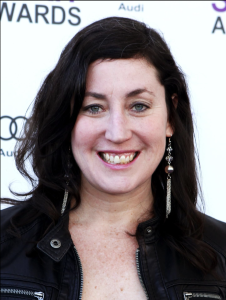
Producer Heather Courtney
H.C: It would be in the public court system, which was run by all the in-laws’ friends. So it was unfair and not really about reconciliation, whereas the council of elders’ mediation process is much more about brining families back together.
Z.K: The council of elders is a traditional group, who, even before colonization, were how we resolved our cases. So the film is a battle between culture and modernity and Christianity and all these layers in between.
H.C: There’s a phrase that sticks with me a lot now because of what we’re going through in the United States: there is no rule of law if the people in charge aren’t following the rule of law. One example of that is what’s happening in these communities. Yes, there are legal protections for widows, but is it followed?
HtN: Clearly this film delves into intense traumas – loss, displacement, sickness, corruption. Many of your other films take upon a similar weight. What is the emotional toll of covering real-life tragedies and how do you cope with this?
Z.K: I think it’s what we do for them and what the film will do for them. It’s intense, it’s a tough situation, and for us, the big question is, “How can we make a difference? How can we use this as a tool for education?”
H.C: It’s always the people in the film that keep me going. In one film, I followed these kids that went to war in Afghanistan and that was really hard, very stressful, but I kept thinking how much I wanted and how much they wanted their story to be told. You just have to keep going.
Z.K: And she [Heather] was part of my therapy. When things happened, I would call her and we would talk about it for a long time, so I would throw a lot of things on her and figure out how to resolve it because there were some times when you’d find and it’d be like, “Where is the line? Do I keep filming? Do I stop?” There were those moments where people were very sick, people were dying, and it was a question of what do I do as a Kenyan filmmaker, but also as a Kenyan woman.
HtN: After watching the film, what is one lesson – out of many – that audience members can learn from Rodah?
H.C: I always say that Rodah is the hero we need right now. She’s inspired me so much in these very difficult times we’re experiencing here in the U.S. to not give in to those in power, and to keep going no matter how hard it is. She’s just a badass.
Z.K: I mean, yeah, Heather said it. She just persists. It’s so hard for her and all the women, but they don’t give up. There would be people that would be like, stop writing, stop filming, but they would pray over us that we could still keep going.
HtN: How has Rodah’s activism and the struggle for widows’ land rights progressed since making the film?
Z.K: Rodah wants to start a Widow-led resource center and safe house, so that when women are kicked out, they have a place to go. The numbers are low, but there are so many other areas in Kenya, in the continent, in India, in Asia, where this is going on. I think we have a lot of work to do, and we hope the film will be a small contribution in bringing these conversations to light.
– Kaitlyn Hardy

